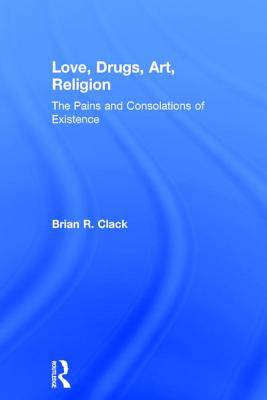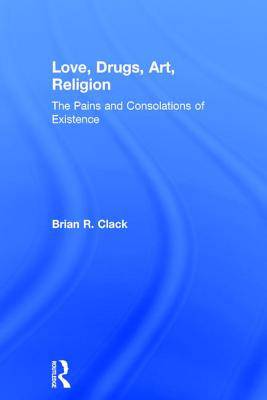
- Retrait gratuit dans votre magasin Club
- 7.000.000 titres dans notre catalogue
- Payer en toute sécurité
- Toujours un magasin près de chez vous
- Retrait gratuit dans votre magasin Club
- 7.000.0000 titres dans notre catalogue
- Payer en toute sécurité
- Toujours un magasin près de chez vous
Love, Drugs, Art, Religion
The Pains and Consolations of Existence
Brian R Clack
Livre relié | Anglais
305,45 €
+ 610 points
Format
Description
In this genuinely interdisciplinary work, Clack breaks new ground by using detailed explorations of the phenomena of drug-use, romantic love and the enjoyment of art in order to throw light on the meaning and nature of religion. This book will be vital reading for anyone concerned with the fundamental questions of religious belief, the psychoanalytic approach to culture, or simply the unavoidable existential problems lying at the very heart of human life.
Spécifications
Parties prenantes
- Auteur(s) :
- Editeur:
Contenu
- Nombre de pages :
- 208
- Langue:
- Anglais
Caractéristiques
- EAN:
- 9781409406754
- Date de parution :
- 28-03-14
- Format:
- Livre relié
- Format numérique:
- Genaaid
- Dimensions :
- 156 mm x 234 mm
- Poids :
- 467 g

Les avis
Nous publions uniquement les avis qui respectent les conditions requises. Consultez nos conditions pour les avis.






